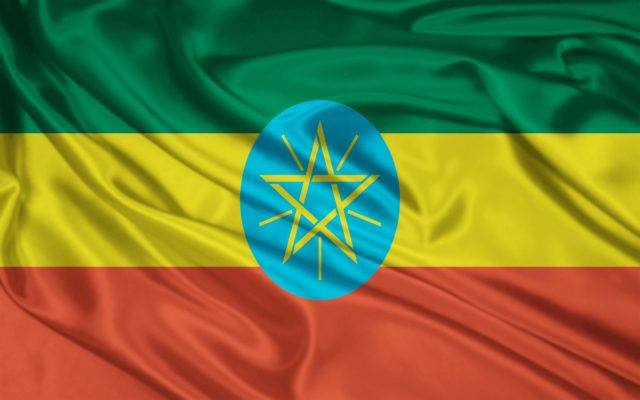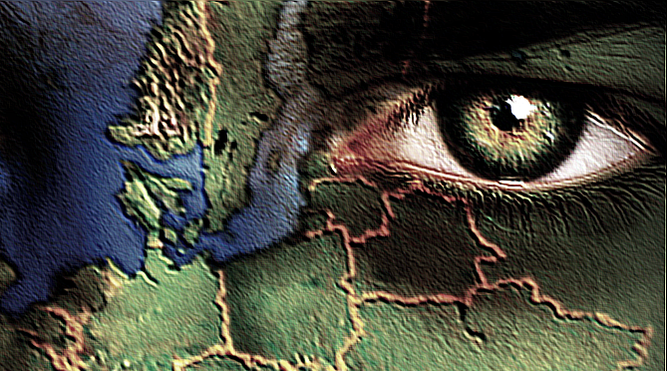الصراع الإثيوبي:التأثيرات الداخلية والأبعاد الجيوسياسية
Ethiopian conflict : Internal influences and geopolitical dimensions

اعداد : د.الشرقاوي الروداني، أستاذ زائر بعدة جامعات مغربية ودولية، خبير في الدراسات الجيواستراتيجية والأمنية.
- المركز الديمقراطي العربي
- مجلة الدراسات الإستراتيجية والعسكرية : العدد الرابع عشر آذار – مارس 2022 , المجلد 4 وهي مجلة ثلاثية دولية محكّمة تصدر من ألمانيا – برلين عن “المركز الديمقراطي العربي” .
- ,تُعنى المجلة بالدراسات والبحوث والأوراق البحثية في مجالات الدراسات العسكرية والأمنية والجيوسياسية، وفي مجال العلاقات الدولية، وقضايا التخطيط الاستراتيجي للتنمية، وإعداد وتهيئة المجال والحكامة الترابية، والمواضيع المتعلقة بوضع السياسات والبرامج وتقييمها، إِنْ في المجال الاقتصادي والمالي أو في المجال الاجتماعي، سواء كانت هذه القضايا ذات بعد وطني، إقليمي أو دولي؛ إضافة إلى البحوث في العلوم الإنسانية والاجتماعية.
للأطلاع على البحث “pdf” من خلال الرابط المرفق :-
ملخص :
تعيش منطقة شرق إفريقيا اهتزازات سياسية وأمنية بفعل الصراع داخل الأراضي الإثيوبية. هذا الصراع البنيوي بين القوات الحكومية وجبهة تحرير تيغراي ينضاف إلى الازمة الأمنية التي تعيشها الدول المجاورة من خلال انتشار الجماعات الإرهابية والتهديدات التي تلاحق اغلبية دول المنطقة.
في هذا الاتجاه، فإن محاولة الرئيس أحمد أبي هندسة المشهد السياسي لمعالجات آنية ذات تأثيرات على المدى البعيد لا يمكن أن تنجح بدون مقاربة تشاركية تتطلب تهييئا مسبقا. ومن ثم فإنه كان من المتوقع أن ترفض جبهة تحرير تيغراي الانضمام إلى الحزب الجديد وذلك لاعتبارات تاريخية وسياسية. فالجبهة تعتبر نفسها مكونا محوريا في بناء الدولة الحالية وكيانا سياسيا قويا قد هيمن على السياسة الإثيوبية خلال السنوات الـ 27 الأخيرة، ومن ثم فإن من الصعوبة تذويبه بهذه السهولة في هندسة سياسية جديدة.
إن أهمية إثيوبيا وموقعها الجغرافي يجعلانها دولة ذات تأثير استراتيجي. هذه المحددات الجيوسياسية للصراع والتي مازال الوقت لاحتوائها قد تتحول إلى صراع جيواستراتيجي بدخول قوى محدثة للفوضى دون الدولة. إثيوبيا البلد المحوري في المنطقة والقارة الأفريقية والمحاذي للمجموعة من نقط التأثير الاستراتيجي كالبحر الأحمر، يحتاج إلى دعم حقيقي من المنتظم الدولي ومن المهم ألا يصبح رقعة شطرنج تحسم فيها مشاريع وتوجهات جيواستراتيجية وجيواقتصادية دولية. إن الموقع الجد حساس لهذا البلد، المحاذي لستة بلدان، اثنان منها تعانيان صراعات هما جنوب السودان والصومال، الى جانب السودان التي تعيش أوضاعا أمنية واقتصادية مزرية، يفرض تعاونا سياسيا ودبلوماسيا دوليا لتوجيه البوصلة في اتجاه تحقيق السلم والأمن ما دام الصراع لم يتجاوز عتبة استحالة التراجع.
في نفس الاتجاه، وأمام الحرب الروسية الاوكرانية وتداعياتها الاستراتيجية على دول القارة الإفريقية، فإن فكرة الدولة الوطنية في المنطقة قد تعرف تراجعات في الأسهم. وعلى المستوى الأمني فإن تواجد جماعات إرهابية في المنطقة خاصة في الصومال، الموزمبيق وتنزانيا والارتباطات الظاهرة لبعض الاثنيات بسوق الإرهاب في المنطقة قد يضع مجموعة من الدول فوق فوهة بركان.
ومن تم فإن التنظيمات الإرهابية كحركة “الشباب” في الصومال وتنظيم القاعدة وتنظيم “الدولة” الاسلامية قد يتغدون من التوترات المتزايدة ومن المحتمل استغلال الوضع للتموقع وكسب مساحات جديدة ومتعاطفين جدد. إن المكانة الاستراتيجية لإثيوبيا وقربها من مضيق باب المندب والبحر الأحمر قد تكون فرصة لطهران للاستثمار في الصراع وبالتالي محاولة دعم بعض القوى، دون الدولة، الفاعلة في الصراع من أجل توجيه وإيجاد مكانة جديدة لفرض واقع يساعدها على التموقع الاستراتيجي.
Abstract
The Ethiopian conflict between the federal government and the Popular Front for the Liberation of Tigray threatens to bog down an entire region in chaos. Because of this conflict, East Africa could constitute a core of structural fragility and vulnerability. This structural conflict between government forces and the FPLT adds to the security crisis experienced by neighboring countries through the presence of terrorist groups and threats affecting most countries in the region. Thus, President Ahmed Abey’s attempt to reform the political scene without a participatory approach has led the country into unprecedented dislocation. Therefore, the Tigray Liberation Front refused to join the new political coalition due to historical and political considerations. Indeed, the Front sees itself as a central element in the construction of the current state and therefore as a strong political entity that has dominated Ethiopian politics for the past 27 years, and it is therefore difficult to dissolve it so easily in new political engineering.
The importance and geographical position of Ethiopia make it a country of strategic influence. These geopolitical determinants of the conflict, which there is still time to contain, can turn into a geostrategic conflict with the entry of chaotic extrinsic forces and powers. Ethiopia, a pivotal country in the region and on the African continent, and adjacent to a strategic influence’s area such as the Red Sea, needs real support from the international community, and it is important that it does not become a game of chess where actors play for the planning of geostrategic and geoeconomic projects.
In short, the security situation in which the country is bogged down remains very sensitive. Bordering six countries, two of which suffer from conflict – South Sudan and Somalia, in addition to Sudan, which lives in dire security, Ethiopia could tip into an endless war.
Moreover , faced with the Russian-Ukrainian war and its strategic repercussions on the African continent, the idea of a national state in the region risks weakening. On the security front, the presence of terrorist groups in the region, particularly in Somalia, Mozambique and Tanzania, and the apparent links of certain ethnic groups with the terrorist galaxy in the region may increase the risk of instability and insecurity. Faced with this situation, the international community must not turn a blind eye to this reality. Given the geopolitical determinants of the Ethiopian conflict, the issue of the territorial integrity of several countries is at stake.




